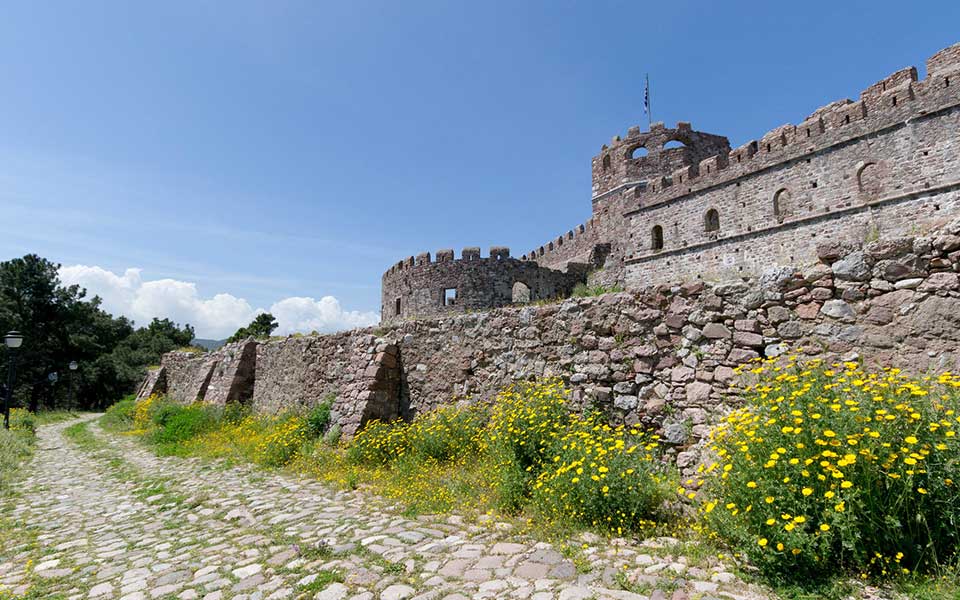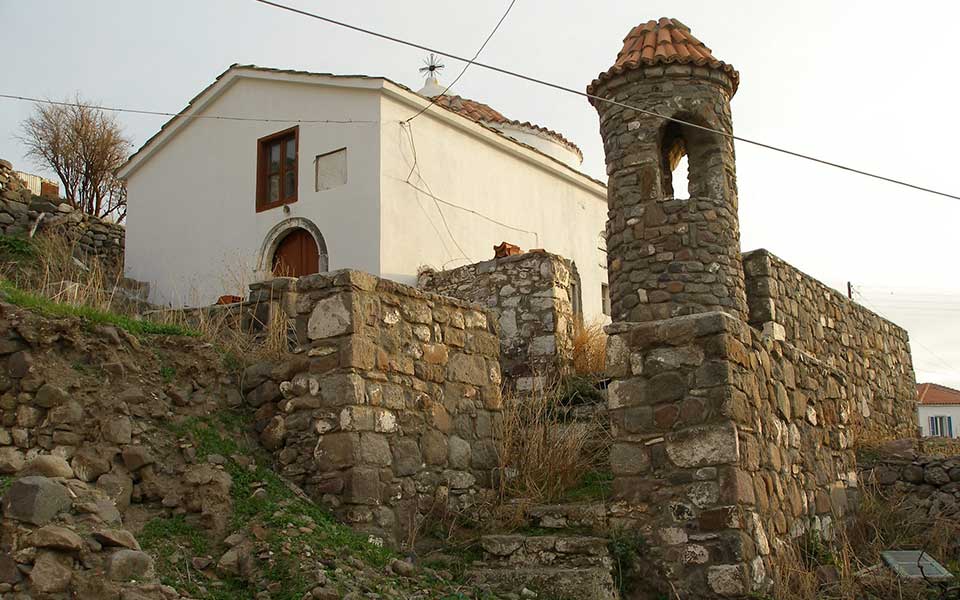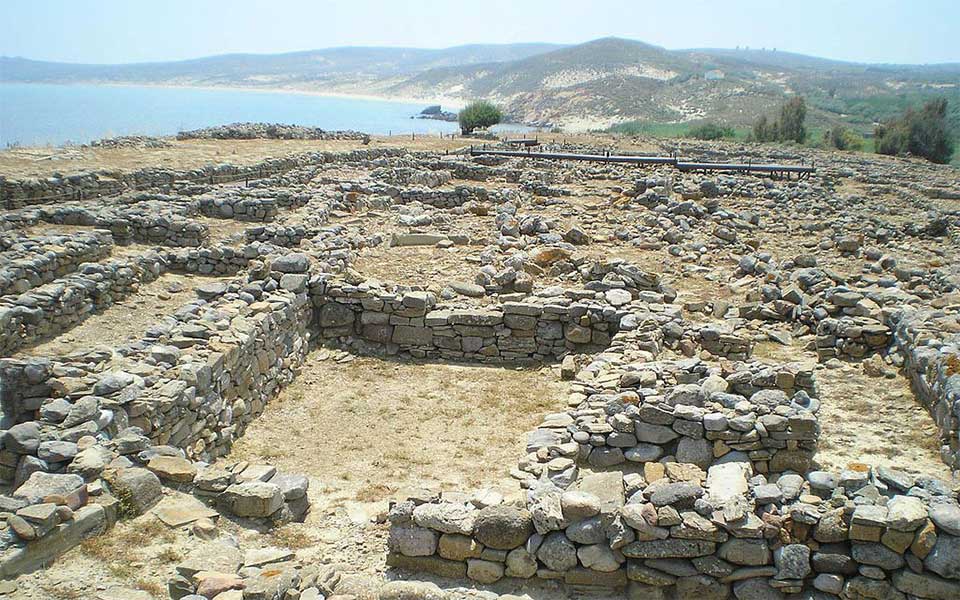The Greek Ministry of Culture has announced the launch of five archaeological restoration projects in the North Aegean, with funding from the EU’s Recovery and Resilience Fund.
Created in the wake of the coronavirus pandemic, the fund provides financial support to EU member states to foster lasting and sustainable growth, with a focus on the transition to a low-carbon, digital and more inclusive economy.
An important component of Greece’s recovery plan includes investments in its cultural heritage sector, a major driver of tourism, including the improvement of existing infrastructures and the restoration of archaeological sites and monuments.
In this latest announcement, 6,282,300 euros of funding has been allocated for much-needed restoration and maintenance projects at sites on the islands of Chios, Lesvos, Limnos and Agios Efstratios.
In a statement, Culture Minister Lina Mendoni emphasized the importance of the fund for the protection of monuments on the North Aegean islands, with a particular focus on the development of local economies and tourism: “The Recovery Fund is supporting projects that highlight the richness of the region’s cultural heritage, from prehistoric times to Byzantine and post-Byzantine times. These projects will enhance the development dynamics of local communities and contribute to their respective economies, both in their implementation and in their operation.”

© Hellenic Ministry of Culture and Sports
The following projects have been launched:
Byzantine and post-Byzantine frescoes on Chios
Three churches on Chios, with monumental frescoes dating to the 15th to 17th centuries, will undergo extensive restoration and maintenance works. These are the churches of Agios Georgios in Sidirounta, Paleos Taxiarchis in Mesta, one of the most important mastic villages on the island, and Agios Thalas in Agios. The works will also include conservation of the buildings’ masonry, wood-carved iconostasis and portable icons.
Nea Moni, Chios
Inscribed on the UNESCO World Heritage List, Nea Moni (“New Monastery”) is one of Chios’ most famous landmarks. The restoration project will focus on the site’s fortification enclosure and defensive tower, further enhancing the monumental Byzantine complex, built in the 11th century, as a major visitor attraction on the island. The monastery consists of the katholikon, with its renowned mosaics – among the finest examples of Renaissance art in Greece – two smaller churches, a dining hall, an underground water cistern, and the monks’ cells.

© Hellenic Ministry of Culture and Sports
The Castle of Mytilene, Lesvos
Covering an area of 60 acres, the Castle of Mytilene is one of the largest fortresses in the Mediterranean. The project aims to restore the medieval precinct in the northeast corner, the most dilapidated part of the castle, focussing on weak masonry at risk of collapse and the maintenance of the existing ramparts. A popular draw for tourists on the island, the works will also install the necessary infrastructure to make the site accessible to disabled visitors.
The prehistoric settlement of Poliochni, Limnos
The prehistoric settlement of Poliochni on the east coast of Limnos is widely believed to be the oldest large-scale urban settlement in Europe, first settled in the mid-5th millennium BC. The restoration works will target the western sector of the site, the residential complex, focussing on the maintenance of existing structures and protecting them against future deterioration. Information and guide routes at the site will also be improved, enhancing visitor experience.
The post-Byzantine church of Agios Vassilios, Agios Efstratios
Extensive restoration works at the post-Byzantine church of Agios Vassilios will also include maintenance of the murals and extensive landscaping of the surrounding area, incorporating it into a planned network of cultural routes on the small island of Agios Efstratios. The creation of digital apps, as well as bilingual and Braille information, will further improve accessibility to the site.












